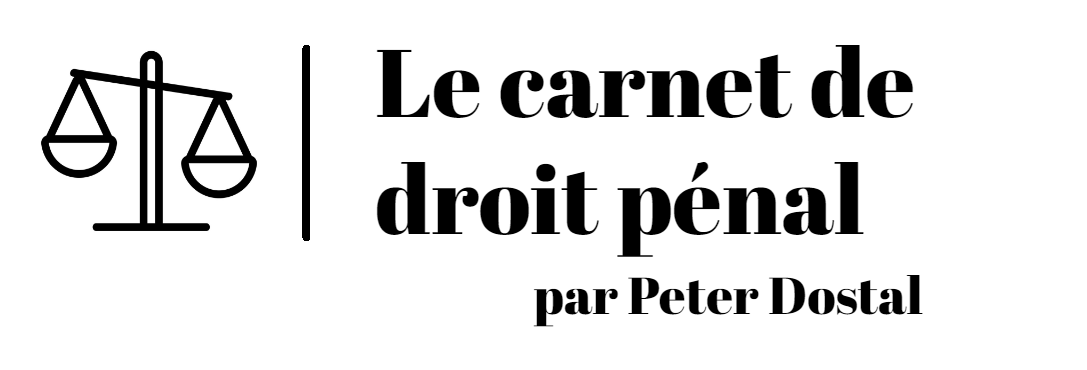« Fouille sans mandat de biens abandonnés » : différence entre les versions
m Remplacement de texte : « \{\{fr\|[^\}\}]+\}\}↵ » par « » |
m Remplacement de texte : « ==Principles== » par « ==Principes== » |
||
| Ligne 2 : | Ligne 2 : | ||
{{Currency2|janvier|2019}} | {{Currency2|janvier|2019}} | ||
{{LevelZero}}{{HeaderWarrantless}} | {{LevelZero}}{{HeaderWarrantless}} | ||
== | ==Principes== | ||
A person gives up their section 8 rights including an expectation to privacy when their property becomes abandoned.<ref> | A person gives up their section 8 rights including an expectation to privacy when their property becomes abandoned.<ref> | ||
{{CanLIIRP|Patrick|231wj|2003 SCC 17 (CanLII)|[2009] 1 SCR 579}}{{perSCC-H|Binnie J}}{{atsL|231wj|22| to 23, 25}}<br> | {{CanLIIRP|Patrick|231wj|2003 SCC 17 (CanLII)|[2009] 1 SCR 579}}{{perSCC-H|Binnie J}}{{atsL|231wj|22| to 23, 25}}<br> | ||
Version du 1 août 2024 à 08:33
| Cette page a été mise à jour ou révisée de manière substantielle pour la dernière fois janvier 2019. (Rev. # 12967) |
Principes
A person gives up their section 8 rights including an expectation to privacy when their property becomes abandoned.[1]
The main issue is whether the claimant "acted in relation to the subject matter of his privacy claim in such a manner as to lead a reasonable and independent observer to conclude that his continued assertion of a privacy interest is unreasonable in the totality of the circumstances."[2] This is found as a matter of fact.[3]
The act of abandonment must be done by the owner of the object. Where abandonment was by act of a third party, then the privacy interest of the owner will still exist.[4]
The conduct of police in obtaining and processing the evidence is not a relevant consideration.[5]
Whether something is abandoned is a "highly factual inquiry."[6]
A main point of litigation is over whether the officer had grounds to believe that the property was abandoned. This is particularly true where the information is based on hearsay or assumptions.
- ↑
R c Patrick, 2003 SCC 17 (CanLII), [2009] 1 SCR 579, par Binnie J, aux paras 22 to 23, 25
R c Plummer, 2011 ONCA 350 (CanLII), [2011] O.J. No. 2034 (CA), par MacPherson JA
R c Nesbeth, 2008 ONCA 579 (CanLII), 238 CCC (3d) 567, par Rosenberg JA
R c B(L), 2007 ONCA 596 (CanLII), 227 CCC (3d) 70, par Moldaver JA
R c Stillman, 1997 CanLII 384 (SCC), [1997] 1 SCR 607, par McLachlin J (dissenting), au para 223
R c Dyment, 1988 CanLII 10 (SCC), [1988] 2 SCR 417, per La Forest J, au p. 435
- ↑
Patrick, supra, au para 25
R c Wafid Delaa, 2009 ABCA 179 (CanLII), 244 CCC (3d) 502, par curiam, au para 6, dismissed leave [2009] SCCA No 302
- ↑ Patrick, supra at 25
- ↑ e.g. R c Law, 2002 SCC 10 (CanLII), [2002] 1 SCR 227, par Bastarache J
- ↑
Wafid Delaa, supra, au para 6 - undercover officer got DNA sample of accused by tricking them into taking part in gum-tasting survey
cf. R c Nguyen, 2002 CanLII 44910 (ON CA), 57 OR (3d) 589, par curiam - sample obtained in police station - ↑
R c Hendrickson, 2018 BCSC 288 (CanLII), par Devlin J, au para 49
Examples
- Deleted Files on a Computer
Files that have been deleted from a computer is not the equivalent of abandonment. Rather, it is a sign of an intent to keep data private from everyone including the accused.[1]
- Garbage
Garbage, even when within the bounds of the owner's property, can still have an abandoned privacy right.[2] Garbage that is not within reach of the lot line will not be said to be "unequivocally abandoned".[3]
- Throwing Away a Backpack
A person who throws away his backpack while being chanced by police is abandoning his right to privacy in its contents.[4]
- ↑ R c McNeice, 2013 BCCA 98 (CanLII), 335 BCAC 35, par Finch CJ
- ↑ R c Patrick, 2009 SCC 17 (CanLII), [2009] 1 SCR 579, par Binnie J - garbage on private property but on edge of property line and accessible from public space
- ↑
, ibid., au para 62
- ↑ R c Nesbeth, 2008 ONCA 579 (CanLII), 238 CCC (3d) 567, par Rosenberg JA
